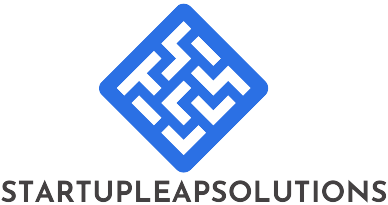Table of Contents
ToggleIn today’s rapidly evolving technological landscape, fintech is at the forefront of revolutionizing how we manage money. But here’s the kicker: hiring the right fintech developers can be a challenging job. They’re like unicorns, hard to find and even harder to catch. So, if you’re ready to embark on this quest, you’re in the right place. Let’s jump into the essentials of hiring fintech developers, ensuring you bring the cream of the crop onto your team, all while keeping your sense of humor intact.
Understanding The Fintech Landscape

The fintech landscape is an exhilarating fusion of finance and technology. It’s where the magic happens, from mobile payment apps to blockchain solutions ruining the traditional banking model. To effectively hire fintech developers, one must first grasp this dynamic ecosystem.
Regulatory challenges, security measures, and user experience all shape the environment. Fintech is about making financial transactions easier and more efficient, but it also demands developers who are quick on their feet and can adapt to constant change. This sector isn’t just about writing code: it’s about understanding financial regulations, consumer behavior, and the ever-evolving tech trends. With such complexity, developers must be versed in both finance and technology, bridging the gap between these two worlds.
Key Skills To Look For In Fintech Developers
When scouring for fintech developers, several key skills should be near the top of your checklist.
- Programming Proficiency: Solid skills in languages like Python, Java, or C++ are essential. Each language has its own positioning in fintech applications, so be sure to match language proficiency with your project needs.
- Knowledge of Financial Regulations: Developers must understand compliance standards such as KYC (Know Your Customer) and AML (Anti Money Laundering).
- Experience with APIs: Given the intricate nature of fintech systems, knowledge of RESTful APIs will help help connectivity between services.
- Data Analysis Skills: In an industry driven by data, ensuring your developers are adept at analytics will help in making informed decisions. Data visualization tools might also come in handy.
- Security Focus: With the increasing threat of cyberattacks, developers must have a keen understanding of data protection. Encryption and secure coding practices are non-negotiable in this domain.
Benefits Of Hiring Fintech Developers
Hiring fintech developers comes with a plethora of benefits that can elevate your project to new heights.
- Expertise in Problem Solving: Fintech developers are trained to think critically and solve complex issues. They can optimize processes that directly impact your bottom line.
- Innovation at its Core: Developers who specialize in fintech are often at the cutting-edge of industry trends. Their knowledge makes it easier to carry out novel solutions, keeping your business ahead of the curve.
- Streamlined Operations: Tailoring financial technology solutions can lead to increased efficiency. Developers are equipped to automate mundane tasks, allowing your team to focus on strategic objectives.
- Custom Solutions for Specific Needs: Via their expertise, fintech developers can create personalized solutions catering to specific business needs, all while ensuring compliance with financial regulations.
- Enhanced User Experience: Good developers understand UX/UI principles, creating intuitive applications that users will love, increasing engagement and retention.
Where To Find Fintech Developers
Finding skilled fintech developers might feel like searching for a needle in a haystack, but never fear. Here are some effective platforms to source your talent:
- Job Boards: Websites like Indeed, Glassdoor, and LinkedIn are treasure troves for finding the right candidates. Look for those with relevant fintech experience.
- Freelance Platforms: Sites such as Upwork and Fiverr offer access to a pool of freelancers who may specialize in fintech. This option is particularly useful for short-term projects.
- Networking Events: Attend fintech conferences, meetups, or webinars. Meeting developers face-to-face can yield relationships that go beyond the screen.
- Tech Communities: Engage with online communities like GitHub or Reddit. Many developers share their work and expertise, allowing you to assess their skills beforehand.
- Referrals: Ask existing employees or professional contacts for recommendations. Often, good developers come from great referrals.
Tips For The Hiring Process
The hiring process can be a hurdle, but following these tips can make it a breeze:
- Create a Comprehensive Job Description: Clearly outline the responsibilities, skills, and qualifications needed. A well-defined role will attract the right candidates.
- Assess Technical Skills: Carry out coding challenges or tests that reflect real-world scenarios they might encounter in your organization.
- Conduct Behavioral Interviews: Gauge cultural fit and soft skills through behavioral interview techniques. Developers who can communicate effectively will mesh better with your team.
- Check References: Always contact previous employers to verify claims and get a sense of the candidate’s work ethic and skills in action.
- Offer Competitive Compensation: Fintech is a hot market. Offering competitive salaries or a range of benefits can attract high-quality talent.
Challenges In Hiring Fintech Developers
While hiring fintech developers can be fruitful, it does come with challenges.
- Skill Shortages: Finding candidates who possess a good blend of technical skills and financial knowledge can be difficult.
- Competition: The demand for fintech talent often outstrips supply. Companies must stand out to attract developers.
- Retention Issues: With the competitive market, keeping talent engaged and satisfied is vital.
- Rapid Changes in Technology: Fintech is constantly evolving. Developers must keep their skills up-to-date, creating a need for continuous learning and adaptability.








